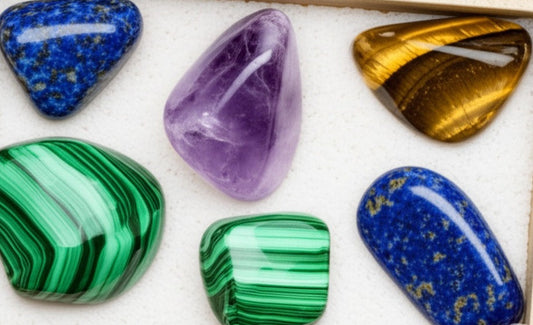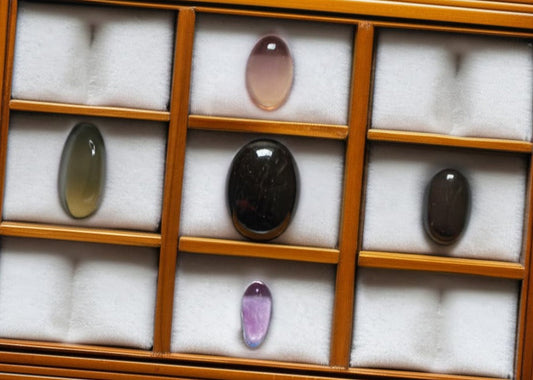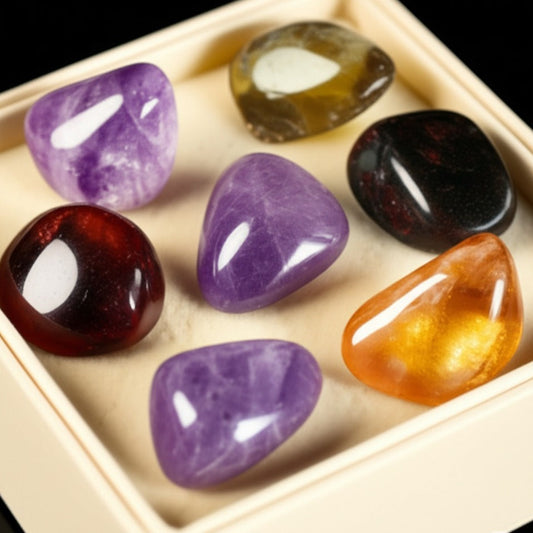
Complete Guide to the Gemstone Business: Sourcing, Trading, Testing & Export Tips
Share
Starting and Succeeding in the Gemstone Business: A Comprehensive Guide
How to Evaluate and Authenticate Gemstones
Before you buy or sell any gemstone, learning how to evaluate gemstones is crucial. Key factors include color, clarity, cut, and carat weight (the 4Cs). Some stones, like opals or turquoise, also depend heavily on pattern and matrix. Use tools like a loupe, refractometer, polariscope, and spectroscope for basic evaluation.
weight (the 4Cs). Some stones, like opals or turquoise, also depend heavily on pattern and matrix. Use tools like a loupe, refractometer, polariscope, and spectroscope for basic evaluation.
Gemstone authenticity tests include:
- Visual inspection under 10x magnification
- Hardness tests using the Mohs scale
- UV light reactions
- Specific gravity and RI measurements
Seek certification from trusted gemological labs like GIA or IGI for high-value stones to gain customer trust.
Buying, Sourcing, and Selling Gemstones To start a gemstone business, first identify your niche—natural stones, birthstones, or healing crystals. Where to buy gemstones? Trusted sources include:
To start a gemstone business, first identify your niche—natural stones, birthstones, or healing crystals. Where to buy gemstones? Trusted sources include:
- Direct miners or mine auctions (Sri Lanka, Tanzania, Pakistan)
- International markets (Bangkok, Jaipur, Chanthaburi)
- Online B2B marketplaces like Alibaba and Gem Rock Auctions
Where to sell gemstones?
- Your Shopify website
- Etsy, eBay, Amazon
- Instagram & Facebook Marketplace
- Gemstone fairs and trade shows
Understanding Profit Margins and Avoiding Fakes
Profit margins in the gemstone business can range from 20% to over 200%, depending on rarity, demand, and authenticity. Always factor in shipping, certification, and marketing costs.
To avoid imitations, avoid buying from unverified sources. Learn to distinguish between natural, treated, and synthetic stones. For example:
- Real rubies fluoresce under UV light; fake ones may not.
- Natural turquoise shows a matrix; stabilized versions don’t.
Export and Import Process for Gemstones
The export-import process involves:
- Sourcing from legal suppliers
- Getting gem certification
- Declaring goods with customs
- Using freight forwarders experienced in gemstone handling
- Following trade laws and CITES regulations if exporting coral, ivory, or rare materials
For e-commerce, check import duties and documentation required for each country.
Top Gemstones in the Global Market
Here's a list of popular gemstones in regular and high-value trade:
- Ruby
- Sapphire
- Emerald
- Diamond
- Spinel
- Tanzanite
- Zircon
- Tourmaline
- Peridot
- Topaz
- Amethyst
- Opal
- Garnet
- Aquamarine
- Lapis Lazuli
These stones are traded globally for jewelry, healing, and collector’s purposes.
Top Jewelry and Gemstone Trade Shows
Participating in trade shows boosts your credibility and connects you with suppliers and buyers. Notable events include:
- Tucson Gem & Mineral Show (USA)
- Hong Kong International Jewelry Show
- JCK Las Vegas
- Bangkok Gems & Jewelry Fair
- Baselworld (Switzerland)
- Vicenzaoro (Italy)
- Istanbul Jewelry Show



